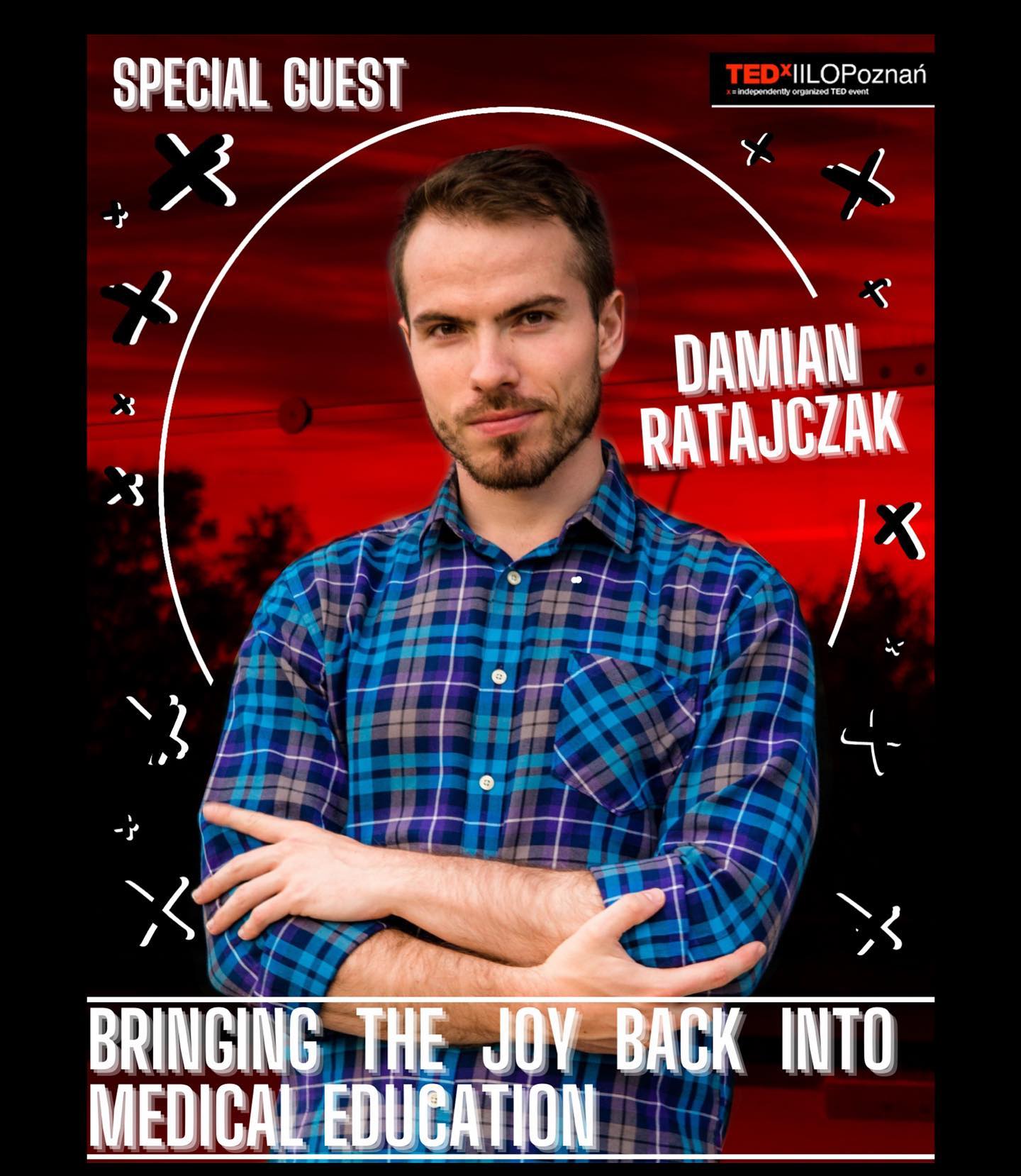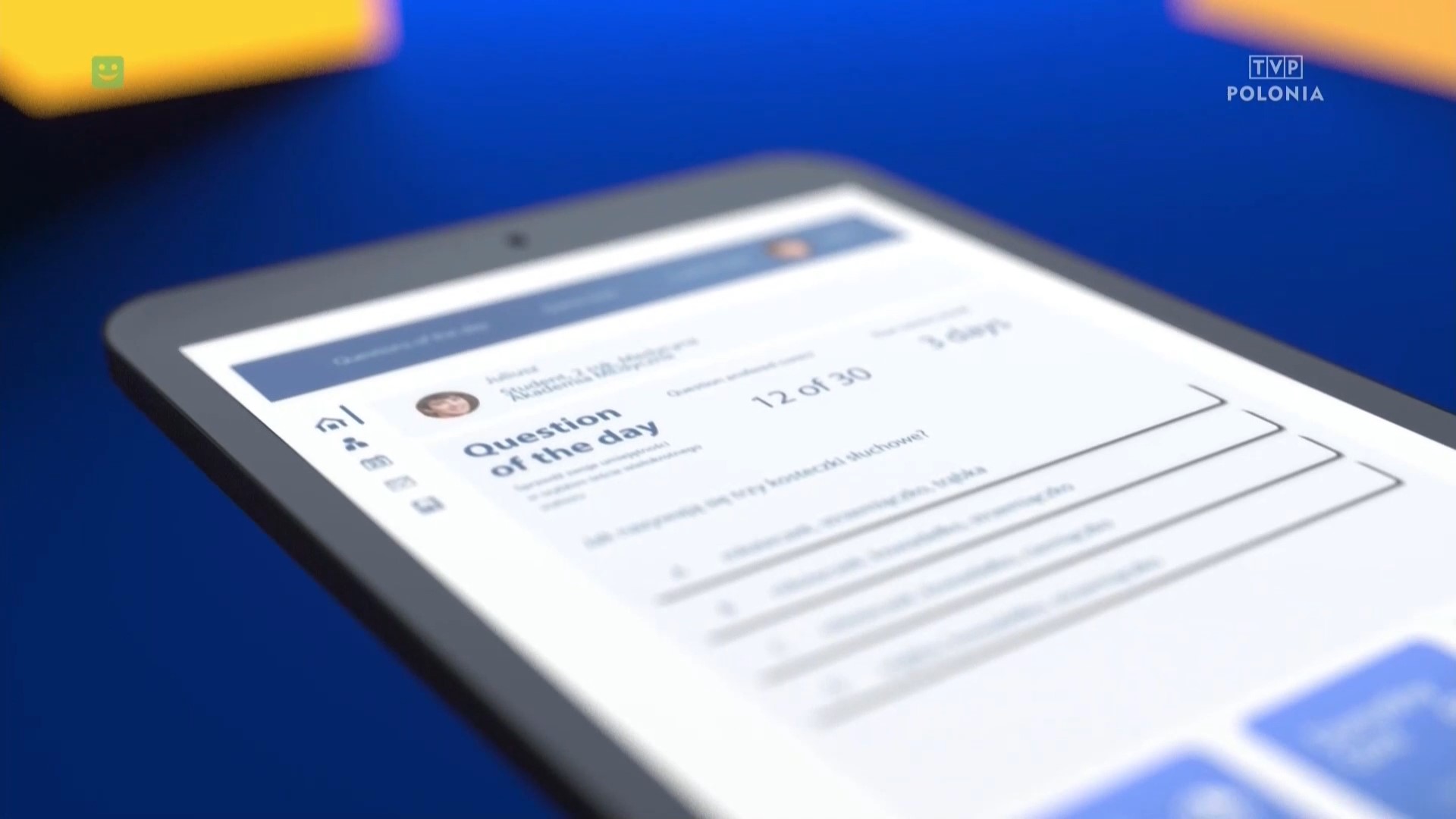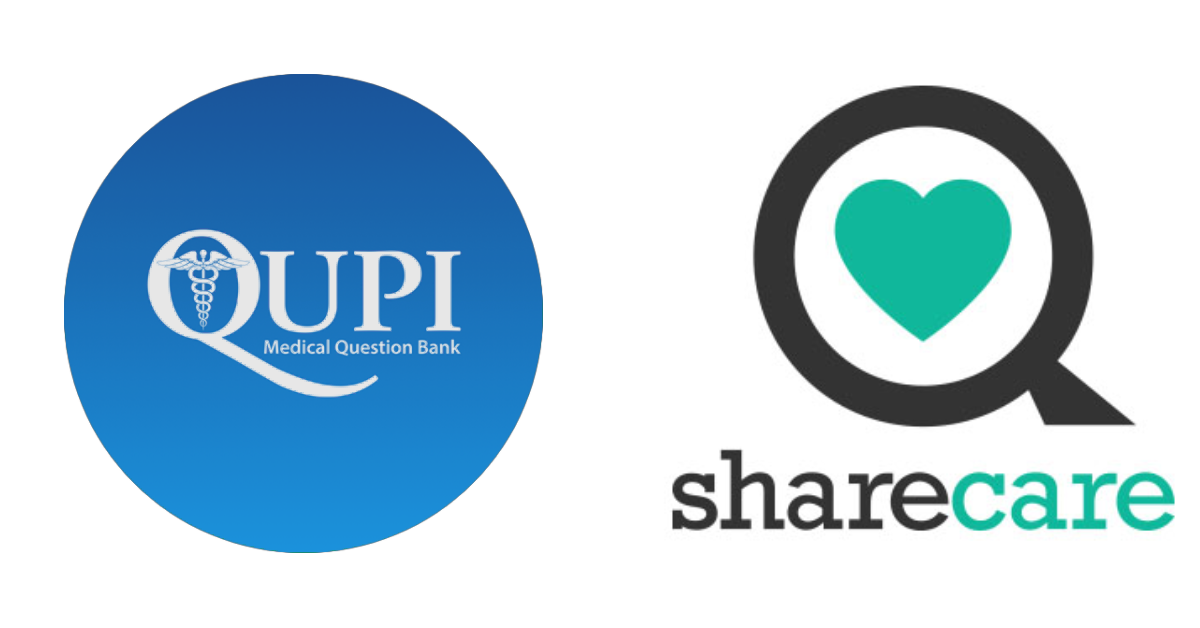Since our founding, SOWA Marketing has made it our mission to work with companies motivated by a desire to use technology and innovation to change the world for the better.
One of our earliest projects, QUPI, has encapsulated this mission from the start. An innovative medical question bank, QUPI is not only a popular study tool: It has also inspired a thriller novel and even a full-length feature film!
Recently, the CEO of SOWA Marketing and QUPI, Damian Ratajczak, was invited to give a TEDx talk on the mission of the company, and how to thrive at the crossroads of education, entertainment and technology.
You can watch that speech here:
Damian Ratajczak: Putting The Joy Back Into Medical Education
If you prefer to read rather than watch (or you want to dive deeper into some of the statistics discussed) – here’s an edited transcript of the speech with links to relevant research added, enjoy!
Over to Damian:
INTRODUCTION: The Mental Health Toll of Medical School
Even before the global pandemic hits, doctors in America were already two times more likely to commit suicide than the average population.
The problem begins, unfortunately, in medical school. As many as one in three medical students suffer from depression during their studies.
Why is this?
Many medical students compare the experience to an army boot camp. It is highly competitive. Stressful and often quite brutal.
Many students then graduate with huge debt. They often need to move far from home to get jobs or residencies. And the hours are gruelling.
Being a doctor will never be easy. And medical school should be a challenge. But does it need to be this joyless?
An American medical student, Elizabeth Poolman, told Vox media that, “Fundamentally, medical schools and residency cause mental health disorders. They cause depression.”
Students deserve better. Doctors deserve better. And patients also deserve better.
Research actually shows that patients, on the whole, prefer to see doctors who are happy and kind. Who put them at ease, and seem like they have their own lives and health under control.
Doctors save lives. But the process of becoming a doctor kills. I’m here to explain to you that it doesn’t have to be like this. I’m here to talk to you about how we’re working to put the joy back into medical education.
My Story: Damian Ratajczak on His Life and Background
But before we get there, let me tell you a little about myself.
I am not a doctor. And not a medical student. If you give me a quiz of pathology or microbiology, I will probably fail.
But I am passionate about entrepreneurship. Which, to me, is finding exciting solutions to problems that affect millions of people.
The story starts four years ago. Because four years ago, I lost my job. As you can imagine, I wasn’t the happiest person in the world. I felt lost and didn’t know what to do. Should I stay in the lane of a career I didn’t like or make a shift at the age of 26? That was only one of the questions I kept asking myself at the time. I was working in delegations, and as I returned home, I started hanging out with an international group of people, right here in Poznan.
This included business people from the UK and United States, as well as students at Poznan’s University of Medical Sciences.
And that was a kick of inspiration!
Together, we decided to do something to change the lives of medical students. To make studying easier and even fun. And to help more medical students become doctors.
Since then, it has been a wild journey!
We have created an app. We have made a movie and published a book! And we’re working to make medical knowledge more accessible around the world.
So today, I am going to talk about three things:
One: Putting the joy back into medical education with technology
Two: Blurring the lines between education and entertainment
Three: Making medical knowledge accessible to anyone with a passion to learn.
How QUPI Came to Be
So let’s go back to four years ago, 2016.
We were a group of medical students and entrepreneurs from Poland, Scotland, the United States and beyond.
Our goal was to build some software that would make studying medicine actually fun – more like playing a game than studying with a textbook.
And so we created a desktop platform and mobile app called QUPI.
This is a medical quiz app. Students can take quizzes on different medical subjects, based on the kind of questions that are in licensing exams for doctors.
It’s designed to be fun. Instead of sitting alone in the library with a huge old textbook, instead you feel like you’re on Facebook trying to find out which Hogwarts house you belong to!
QUPI is now a desktop and mobile app with users around the world. And, when there isn’t a pandemic going on, we often tour medical schools to talk to students about how we can help them enjoy the process of studying.
Building this platform has NOT been easy.
I know there are many entrepreneurs in this room who are probably familiar with the process and the challenges.
First, you decide on what problem you are solving, and for who.
In this case, we are making it easier for medical students to practice their medical knowledge.
Then, you have to create the app!
The first challenge was gathering all of the questions – we now have 10,000 – that form the core of QUPI.
To accelerate this process, we used our contacts here in Poznan and elsewhere to crowdsource the questions.
We asked medical students to submit the kind of practice questions that were most relevant to them.
These were vetted by our advisory board which is composed of senior medical students as well as graduates and doctors.
The next step was to create the desktop platform.
This was a BIG challenge. Developers are brilliant but also… difficult. And each new version has brought its own technical problems.
I was working 12, even 13 hour days. Many people here know what that’s like! Every change we made seemed to have unexpected consequences. Each solution brought on some new problems. But eventually… we got there!
When the platform was stable, it was finally time to bring QUPI to the world.
We toured medical universities across the UK, and spoke to students about their challenges.
Many of the first ever QUPI users came onboard during these campus tours, which were also a lot of fun!
When our user base started to grow, we began to focus on a mobile app: The idea here is that you can do a bit of study when you’re on the tram, in the back of an Uber, or even in the supermarket queue!
Surprise surprise, technical issues slowed this down, but it is now finally out into the world and active on both Android and IoS.
On The Film “Final Diagnosis” and the Novel it is Based On
But… QUPI was just the start.
Let me ask you something: What is the opposite of studying?
Ok some of you probably thought about wodka…
But others probably thought about watching a movie on Netflix, or reading a novel, right?
Well, let me tell you about Final Diagnosis. It’s a film based on the novel No Second Chances written by J. T. Madicus, who is a former student at Poznan University of Medical Sciences.
It’s a thriller. There’s gunfights, romance, kidnapping, and a lot of whiskey…
But there’s also medicine. Inside the plot, you see doctors at work. And they explain their thinking and knowledge to you as they solve real cases in high pressure situations.
It doesn’t feel like studying. But you are learning medicine all the same.
The plot follows the story of four American doctors who are kidnapped by mysterious forces, and held captive in a basement.
Soon, they discover they are somewhere in Central Europe – -I won’t say where – and are forced to solve a complex medical puzzle in exchange for their freedom.
A lot goes down, and I can’t go into all of it here, but medicine plays a key role. While the plot is fantasy, the author took great care to make the medical cases realistic and informative – you witness the entire diagnosis from start to finish, and learn how the doctors gather information, rule out wrong answers, and edge closer to the correct conclusion.
A “Thrilling” Way To Teach Medicine On the Big Screen
No Second Chances is being turned into a movie Final Diagnosis, which was filmed last year, right here in Poznan.
The cast of the film had some actors you might recognize. One of the doctors was played by Ilona Janyst from M Jak Milosc and Przyjaciółki, and another main character was played by Pawel Sakowski, the only Polish actor who appeared in Game of Thrones.
The production became something quite big! We turned Minoga Klub on Nowowiejskiego into a Czech bar, and had over 100 extras crammed in there for the filming of one of the biggest scenes! I was there, trying to make everything go smoothly. Of course… it didn’t always!
Actually the producer and writer, J. T. Madicus, ended up getting punched in the face by an extra who was practicing for a fight scene!
But in the end, we got there. A second round of footage was completed in Los Angeles at the start of this year. And right now, the film is in post production. We hope the final cut will be released this year.
Like creating the QUPI app and platform, the experience of producing a serious professional film was challenging!
Each scene has so many moving parts: From makeup and costume design to making the set, getting the right cameras in the right places, working with the actors and extras, and making sure everything you are doing results in the story you want to tell and creates the desired emotional effect.
And then you have post-production… getting the sound right. Voice overs. Special effects. Color correction.
And then marketing, distribution, the whole world and rights and deal makers that take something from an idea to the homepage of – hopefully! – your Netflix account.
Of course, the best part is hanging out on the set, and then watching the resulting footage. You really see something that once was just an idea actually come to life, and it’s an amazing feeling I’m sure many people here are familiar with.
This is all good fun! But it’s also part of our broader mission to put the joy back into medical education.
When you can watch a movie, you can relax, enjoy yourself, and also learn something that might help you in your medical course or career as a doctor.
It won’t replace your conventional education, but it can supplement it and help you find more pleasure in it.
Humans learn through story. There’s a reason why everyone here can tell me the plot of Game of Thrones, but no one can remember most of what they learned in High School!
We tend to think of entertainment and education as separate.
But when they are combined, magical things can happen!
So, let’s put the joy back not just into medical education, but into all education.
Let’s find a way to enjoy the things that matter the most.
And this is what we are working for.
How Final Diagnosis and QUPI Make Medical Knowledge More Accessible
This mission can be a lot of fun.
But it’s also serious.
Of course, the global pandemic has highlighted the critical importance doctors and medical professionals play in society.
A society without enough doctors simply won’t function.
And unfortunately, the trend is going largely in the wrong direction.
A meteor is heading towards us.
Two global forces are combining to create a catastrophic doctor shortage within the next 25 years.
The first force is an aging population. This is something that affects countries across the world. Even in Poland, over 6 million Polish people are above working age. Elderly people, of course, require medical care, which requires doctors.
This alone isn’t necessarily a problem. The problem is that we are making more old people than new doctors!
As the ratio between elderly people and new doctors continues to skew, medical resources get strained.
We can’t stop society from getting older. What we can do is make it more efficient to train doctors.
Technology can help here. We are right now seeing a revolution in online learning. But even before the pandemic, universities from Case Western in Ohio to the University of California in San Francisco have been using Virtual Reality to revolutionize the way they teach anatomy to medical students.
By using VR tools like Microsoft’s HoloLens system, students can perform realistic dissections without cadavers, and gain even more insight into the workings of the human body than they would the old-fashioned way.
Technology can make medical education more efficient, so we train doctors faster….
.,.. It can also make medical knowledge more accessible, so more people have the opportunity to learn medicine and become doctors.
QUPI is, of course, just a small part of this puzzle.
It’s our contribution to using technology to make medicine easier to learn, by creating an affordable online tool that anyone can access.
We are trying to create a world in which you don’t have to be rich in order to afford the tools you need to learn medical science…
… and where anyone with the passion and motivation can study medicine and become doctors…
Damian Ratajczak’s Personal Advice For Aspiring Entrepreneurs
So, before I finish, I want to talk quickly about this idea of following your passion, following your dream.
This is something we hear a lot… so often, that it almost loses its original meaning…
If someone has a dream to become a doctor, they should be empowered to do so. This is what I have been speaking about today.
But what is your dream?
I am not a doctor, and do not plan to become one.
I only ended up working with doctors and medical students because of connections, made right here in Poznan. In a weird way, this helped me to live my purpose and find my own dream:
Every day, I work with people I like to solve important problems through creativity, technology and innovation.
It took many years of trial and error before I figured out that this is what I wanted to do, and still longer before I was able to create the circumstances to actually live this life.
And so my advice… because this is a TedX talk… we should give advice! My advice is this: Ignore people who give advice!
You wouldn’t let someone else tell you who you love, or even what your favorite food is! So don’t let others tell you what you dream to do. Once you recognize your path, you will know it.
When this happens, surround yourself with people who are going in the same direction as you. They do not have to have the same goals: J. T. Madicus is passionate about writing and medical education. I am passionate about business and technology. Together, we have made a lot of things happen that we probably wouldn’t have achieved alone.
Even though we have different backgrounds and even different interests, we can share the same path, and share the same vision.
CONCLUSION: Education At the Intersection of Technology and Entertainment
Our vision is a world where education lies at the intersection of technology and entertainment.
A world where we use the craft of storytelling to put information in context.
And the power of technology to engage student’s attention and interest.
Doing so will not only make us happier…
But it will also make us do our jobs better.
To be better students. Better teachers. And better professionals.
Damian Ratajczak












